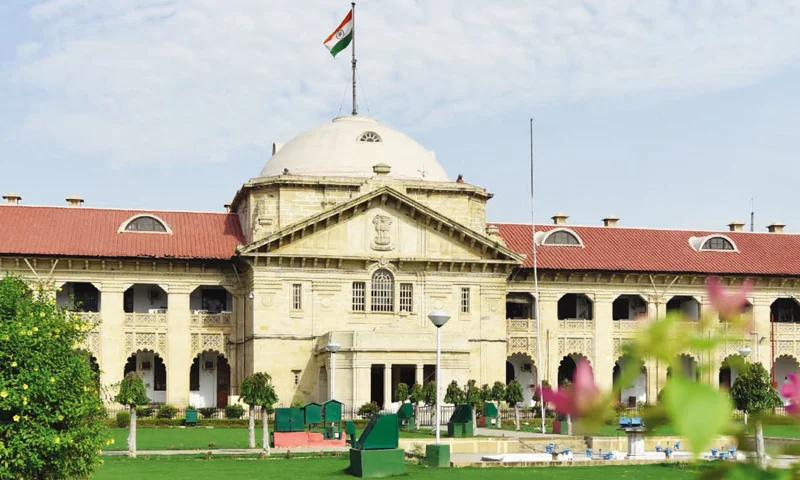In a significant ruling, the Allahabad High Court has held that arbitral awards, concluded under the legal framework at the time of the arbitration proceedings, cannot be reopened due to subsequent judicial rulings. The decision emphasizes that arbitrators are bound by the laws and precedents available at the time of their decisions, and expecting them to apply future judicial pronouncements retroactively would create legal chaos.
Background of the Case
The case involved an appeal against an arbitral award related to land acquisition. The appellant objected to a notification issued for the acquisition of their land, which they claimed was undervalued. They argued that the acquired land, used for commercial purposes with a water bottling plant, had not been fairly compensated. The appellant raised further objections regarding the calculation of compensation, specifically criticizing the lack of consideration for the land's market value and surrounding development. The objections were based on Section 26 of the Right to Fair Compensation and Transparency in Land Acquisition, Rehabilitation, and Resettlement Act, 2013.
The appellant sought enhanced compensation by invoking the Supreme Court's decision in Union of India v. Tarsem Singh (2019), which clarified the application of solatium and interest in similar cases. The arbitrator had, however, passed the award in 2013, several years before this ruling.
Court’s Analysis and Legal Reasoning
The court upheld the arbitral award, emphasizing that it was based on the prevailing legal framework at the time of the proceedings. The bench, led by Justice Piyush Agrawal, reasoned that arbitrators make decisions based on the legal provisions and precedents available at the time of arbitration. Expecting them to foresee future judicial rulings and apply them retroactively is impractical and unreasonable.
The court referred to established judicial precedents, such as National Highways Authority of India v. M. Hakeem (2021), which clarified that modification of an arbitral award is not permissible. Additionally, in Punjab State Civil Supplies Corporation Ltd. vs. M/s Sanman Rice Mills (2024), the Supreme Court held that an arbitral award should not be interfered with merely because an alternative view is possible. The scope of interference by courts in arbitral awards is limited, and they should only intervene in cases of patent illegality or arbitrariness.
The court further rejected the appellant’s argument regarding the inadequate consideration of compensation factors, noting that the arbitrator had duly considered all relevant factors, including market value and circle rates, before determining the award. The arbitrator’s conclusions were supported by sufficient reasoning and evidence on record, making the compensation fair and reasonable.
The Principle of Finality in Arbitral Awards
A critical aspect of the ruling is the emphasis on the principle of finality in arbitral awards. The court observed that reopening concluded arbitrations based on subsequent judicial rulings would lead to a flood of claims seeking to modify or overturn previously granted awards. This would not only burden the legal system but also undermine the principle of finality in arbitration, which is a cornerstone of the arbitration process. Arbitration is meant to provide swift and conclusive resolution to disputes, and allowing retrospective challenges based on new judicial decisions would erode its efficacy.
The court drew attention to the Bharat Coking Coal Ltd. v. L.K. Ahuja (2004) decision, where it was held that the appellate powers under Section 37 of the Arbitration and Conciliation Act are not akin to the normal appellate jurisdiction of civil courts. This is because the scope of judicial interference with arbitral awards is extremely limited. The purpose of arbitration is to resolve disputes efficiently, and courts should not casually interfere with the process unless there is a clear case of violation of legal principles.
Rejection of the Appellant's Claims for Solatium and Interest
The appellant had invoked the Union of India v. Tarsem Singh (2019) ruling to claim solatium and interest. However, the court pointed out that this judgment was delivered six years after the arbitral award had been passed. Since the arbitrator had based the award on the legal framework available at the time, there was no ground for reopening the case to apply this subsequent ruling.
The court reiterated that expecting arbitrators to apply future rulings retroactively would lead to legal and procedural chaos. Judicial decisions should not be applied retrospectively to disturb already concluded proceedings. Arbitral awards, once passed in accordance with the prevailing legal framework, should stand final, and parties should not be allowed to reopen such cases based on future judicial developments.
Conclusion
The Allahabad High Court’s decision underscores the importance of maintaining the finality of arbitral awards. Arbitrators are required to base their decisions on the laws and precedents available at the time of arbitration, and subsequent judicial rulings should not disturb the finality of these awards. Allowing parties to reopen concluded arbitrations would create legal uncertainty and procedural complications, undermining the efficiency of the arbitration process.
In rejecting the appeal, the court reaffirmed that arbitral awards should only be challenged in exceptional circumstances, such as cases involving patent illegality or procedural irregularities. The judgment is a strong endorsement of the principle of finality in arbitration, ensuring that awards passed under the prevailing legal framework are not subject to endless revisions based on subsequent judicial pronouncements.










0 Comments
Thank you for your response. It will help us to improve in the future.